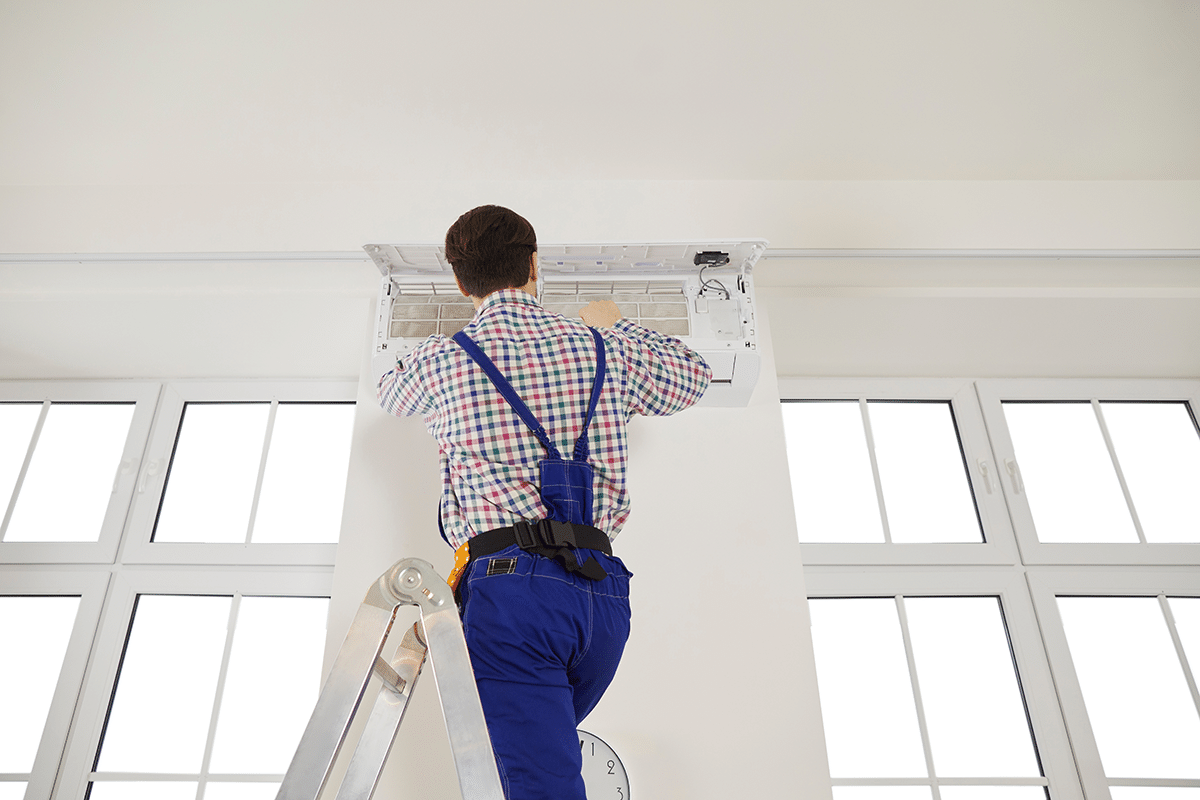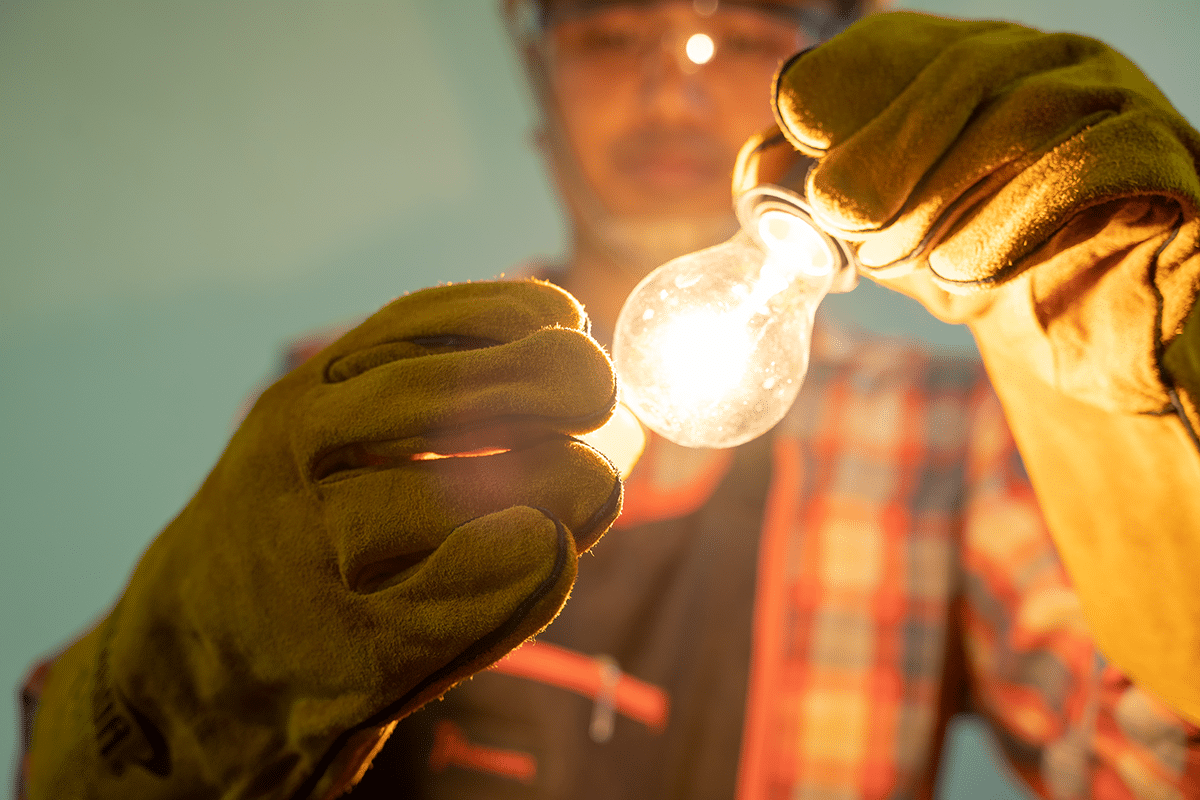
Picture this: You’ve just moved into your dream home. You’ve unpacked the boxes and arranged the furniture and photographs, so the house is starting to feel like yours. You look around and decide to install that stylish light fitting you bought just that morning. It seems simple enough – just a quick wiring job, right? You’ve watched a few YouTube tutorials, so why not give it a go yourself?
Or, you’re in the office the next day, and a new heat pump is delivered. The delivery guy offers to install it for a bit of cash and you gratefully accept his offer. It’s far quicker and cost-effective to have it done this way – and why wait a few days for a Sparky to come and do it? You’ve got clients coming in for a meeting that morning and the office needs to be cool and comfortable.
Stop right there!
These seemingly harmless decisions could be the first step towards a scenario becoming all too common across New Zealand. The allure of DIY, or hiring an unlicensed Sparky, to save time or a few dollars is strong, but the consequences can be devastating.
Here’s some eye-opening stories that made the headlines:
In Auckland, a homeowner’s decision to hire an unlicensed electrician for a hot water cylinder installation nearly ended in tragedy. Months after the installation, the acrid smell of burning wires filled the air, and only the swift action of the fire brigade prevented a full-scale blaze. The result? A $3,500 fine for the electrician and a family left shaken by the near-miss of losing their home and belongings to a huge blaze.
In Northland, another unlicensed individual was fined $6,000 for installing conductors and fittings in three cabins he planned to rent out on his property, and another was fined $6,000 in the Dannevirke District Court for leaving two live wires exposed that triggered a subcircuit overload that burned part of a switchboard.
Businesses aren’t immune, either. One Auckland company learned this the hard way, facing a $9,000 penalty for allowing an unqualified individual to install an office ventilation system.

The hidden currents of liability
Now, you might be thinking, “But I trust the person who says they can do the job.” And there lies the problem – trust isn’t enough when it comes to electrical work. As a Master Electrician spokesman once said: if you don’t get electrical work certified by a registered Sparky, “you may as well have tied two wires together yourself, in the eyes of an insurance company.”
The ripple effect of uncertified electrical work doesn’t stop at potential fires or electrocutions. If you decide to sell your home down the line, that DIY job or uncertified work could come back to haunt you. The legal liability falls squarely on your shoulders, potentially turning your dream home into a legal nightmare.
And in the Workplace, safety involves both employee caution and employer oversight. This shared responsibility can lead to surprising legal outcomes. At work, if one of your team is electrocuted when they turn on the heat pump – you, as an employer, are liable too.
Illuminating the path to safety
So, how can we navigate these difficult situations and ensure our homes and businesses remain safe? Here’s a guide to finding a true professional:
Check those credentials:
- Sparkies need to be a registered electrician with a current Practising Licence from the Electrical Workers Registration Board website.

- All registered electricians should be self-certifying. This means they are authorised to certify their own electrical work as compliant with the relevant regulations and standards. This involves them completing and signing a Certificate of Compliance (CoC) for the electrical work they’ve carried out without needing a third-party inspection or certification. Ask for a copy of your CoC (Certificate of Compliance).
- Before commencing work, check that the individual electrician, not the company owner, has a current Practising Licence. You can check that it’s current on the EWRB website.
- A licence expires every two years. If a licence has lapsed at the time, any CoC (Certificate of Compliance) or ESC (Electrical Safety Certificate) issued by that electrician will be invalid.
Red flags – ignore them at your peril
- Too good to be true:
- Cash-only jobs.
- No official paperwork – quotes or invoices.
- Other tradespeople offering to “just quickly” do electrical work.
- Look for the Master Electrician (ME) seal on the paperwork:
This isn’t just a fancy logo – it’s a promise of quality. Master Electricians undergo rigorous Quality Assurance assessments and offer workmanship guarantees. They’re the gold standard in the industry.
- Experience:
- An experienced electrician brings more than technical skills – they bring a wealth of problem-solving abilities honed over years of diverse projects.
- If the electrician comes from a business with a strong team culture, his teammates can support him. Their diverse skills and experience are an invaluable resource which, combined, benefits everybody.
- Clear communication:
A professional electrician should be able to explain their work in terms you understand and provide a detailed quote. If they can’t articulate what they’re doing, that’s a red flag.
- If your gut says something’s off, listen to it:
Check that you’re using a Master Electrician by finding them on the website. Search by your postcode, and their company name should appear on the list.
The next time you’re tempted to DIY that electrical job or hire the cheapest option available, think twice. Choose safety, quality, and peace of mind. Contact us to discuss your job and get a quote.
